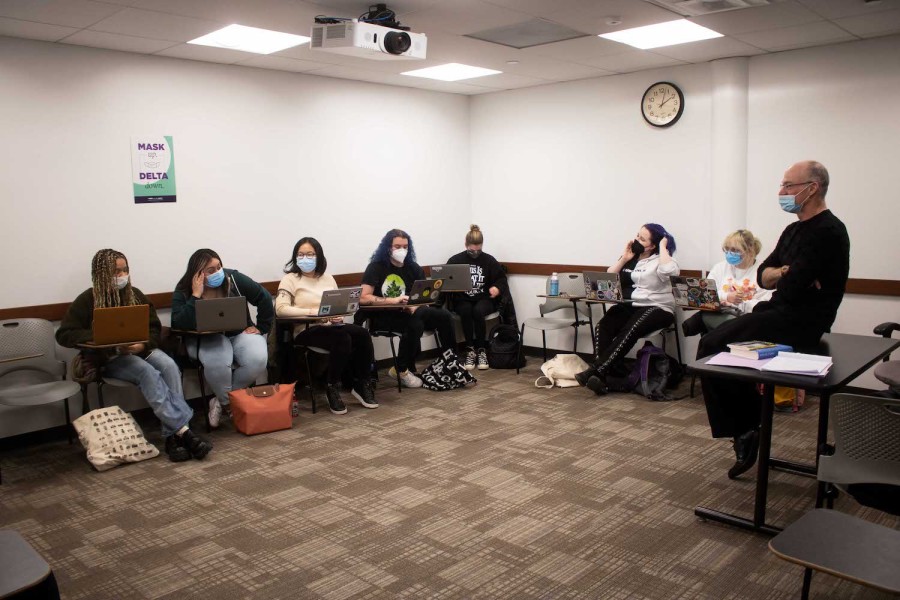Opinion: Recitations shouldn’t be mandatory
NYU should allow students to take ownership of their learning.
(Farheen Khan for WSN)
April 4, 2023
NYU is a large university, with over 50,000 enrolled students, which means class sizes are not always going to be small. Unless you are like me and lucked out with small discussion-based classes in the Liberal Studies program or the Gallatin School of Individualized Study, you are bound to have at least one recitation on your schedule.
These seminars, which are often smaller and more relaxed than standard lectures, are made to allow students to revisit and discuss the content covered in class. In this way, students can get the small college feel within a large university, but that’s not always the case with recitations. These classes can be beneficial when they’re needed, but often become an annoyance to students who understand the content, but must attend or face grade penalties. NYU should allow students to make independent decisions about their learning, not mandate attendance at often-ineffective recitations.
Instead of attending a recitation which covers the same material discussed in lecture, students who understood the concepts the first time can instead devote this time to studying information they struggle with. Recitations are often counted as missed classes, or are opportunities for forced verbal participation. The extra time spent on the same subject can cause boredom, disinterest and even frustration toward the TA. In the span of just 75 minutes, a person’s favorite class might become their least favorite.
Additionally, many students have busy schedules that include clubs, athletics and even on-campus jobs that can make it challenging for them to attend every recitation session. Students can more effectively manage their time and prioritize their responsibilities if they are given the option of attending or skipping recitations. Complicating the issue further, recitations can be difficult to fit into a schedule, either forcing students to attend an early recitation before their classes and miss out on sleep or register for one on an otherwise free day of their week. This time could be used by students to do assignments, carry out independent research or participate in extracurricular activities.
Colleges foster a sense of personal responsibility by letting students make decisions about their own education. Some students might discover that individual study or other supplemental activities help them learn more effectively than recitations. Students’ individual learning preferences could be better catered to by giving them the option of attending or skipping recitations. Giving students the freedom to choose their own way of reviewing material may make them feel more invested in their learning and more driven to succeed.
These recitation sessions do provide advantages over often-huge, traditional lectures like those held in the Skirball Center for Performing Arts, including the reinforcement of challenging concepts and a more engaging learning atmosphere. However, only students who are having trouble with the material benefit from these opportunities. For others, the recitations are a 75-minute chunk of time each week that could be better spent. Unfortunately, recitations do count against the instructional time that the law stipulates must be spent in order for credits to be granted.
Allowing students to drop into recitations — almost as a form of office hours — when they are struggling, rather than being required to be there when feeling secure about the topic, could be a simple approach to maintain the advantages of these programs. Just as some professors suggest that you attend office hours, TAs and professors could even encourage or require students who are having trouble understanding the material to attend a specific recitation for the week.
In order to promote ownership of students’ learning, NYU should actively listen to their concerns, especially when it comes to course format. It’s time to say goodbye to mandatory recitations and give students more power over their education.
WSN’s Opinion section strives to publish ideas worth discussing. The views presented in the Opinion section are solely the views of the writer.
Contact Molly Koch at [email protected].

























































































































































